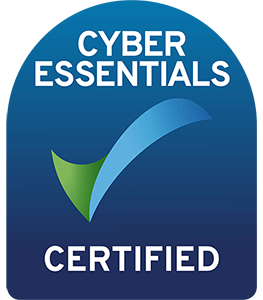Outsourced IT Support vs In-House IT Support
Making the Right Choice for Your Business
Time for a radical statement: Outsourced IT support isn’t for every business. I know! Contain your shock! IT Manager Services provides this, but our priority is Customer satisfaction. We want you to be informed so you can make the best decision for you and your business, even if that means not choosing us.
In today’s digital age, businesses heavily rely on IT infrastructure to streamline operations and stay competitive. However, it can be critical to determine whether to opt for outsourced IT support or maintain an in-house IT department. Each approach comes with its own set of advantages and disadvantages.
In this blog post, we will explore the pros and cons of outsourced IT support versus in-house IT support, helping you make an informed choice for your business.
Cost Considerations
One of the primary factors to consider when deciding between outsourced IT support and in-house IT support is the cost. Let’s examine the pros and cons associated with both options:
A. Outsourced IT Support
Pros:
- Cost-effectiveness: Outsourced IT support can be more affordable, particularly for small and medium-sized businesses, as it eliminates the need for maintaining a full-time, in-house IT team.
- Scalability: Outsourcing IT support allows businesses to scale their services up or down based on their requirements, paying only for the needed services. This flexibility enables cost savings during periods of low demand.
- Predictable budgeting: Outsourced IT support often operates on a fixed monthly fee, enabling businesses to budget their IT expenses more accurately.
Cons:
- Lack of immediate on-site support: Depending on the outsourced IT support agreement, businesses may experience delays in receiving on-site assistance, particularly for hardware issues or emergencies requiring immediate attention.
- Limited control: Businesses relinquish some control over their IT infrastructure and operations to the outsourced provider. Choosing a reliable and reputable provider to minimise this risk is essential.
B. In-House IT Support
Pros:
- Immediate on-site support: With an in-house IT team, businesses can benefit from quick response times and immediate on-site support, ensuring minimal downtime during critical issues.
- Enhanced control and customisation: Having an in-house team gives businesses greater control over IT operations, allowing for customised solutions tailored to specific requirements.
- Deeper knowledge of business operations: In-house IT teams understand the organisation’s workflows, enabling them to align IT solutions more effectively.
Cons:
- Higher costs: Maintaining an in-house IT department involves significant costs, including salaries, benefits, training, and equipment. This can be burdensome, especially for small businesses with limited resources.
- Limited expertise: In-house IT teams may face challenges staying up-to-date with the latest technologies and trends, as they may not have the same exposure to diverse IT environments and specialised knowledge as outsourced providers.
- Lack of scalability: In-house IT support is often not easily scalable. Hiring and training new employees to meet growing IT demands can be time-consuming and expensive.
Expertise and Specialisation

A. Outsourced IT Support
Pros:
- Access to specialised skills: Outsourced IT support providers typically have a broader range of expertise, with professionals specialising in various areas such as cybersecurity, cloud services, and network infrastructure. This expertise can be invaluable in addressing complex IT challenges.
- Stay updated with emerging technologies: Outsourced providers stay updated with the latest advancements in technology, ensuring businesses benefit from cutting-edge solutions without the need for extensive research or training.
- 24/7 support: Many outsourced IT support providers offer round-the-clock support, ensuring businesses receive assistance whenever required, even outside regular working hours.
Cons:
- Limited knowledge of the business: Outsourced providers may take time to fully understand the nuances of a specific company and its operations, which can impact the alignment of IT solutions with business goals.
B. In-House IT Support
Pros:
- In-depth knowledge of the business: In-house IT teams have a deep understanding of the organisation’s processes, workflows, and industry-specific requirements, allowing for more tailored IT solutions.
- Immediate response to critical issues: With an in-house team, businesses can benefit from immediate action and quick problem-solving during critical IT incidents.
Cons:
- Limited expertise in specialised areas: In-house teams may struggle to match the technical skills and knowledge that outsourced IT providers offer, particularly in rapidly evolving areas like cybersecurity and cloud services.
- Staffing challenges: Recruiting and retaining skilled IT professionals can be challenging, especially in competitive job markets, which may lead to talent gaps and increased workload for existing team members.
Focus on Core Business Operations
A. Outsourced IT Support
Pros:
- Enhanced focus on core competencies: By outsourcing IT support, businesses can redirect their internal resources and efforts towards core business activities, driving growth and innovation.
- Leveraging managed IT services: Many outsourced providers offer managed IT services, where they proactively monitor, maintain, and optimise IT systems, ensuring smooth operations and reducing the burden on internal staff.
Cons:
- Dependency on the external provider: Relying on an outsourced provider for critical IT functions means businesses must establish a strong partnership, ensuring consistent service delivery and reliability.
B. In-House IT Support
Pros:
- Greater control over IT strategy: With an in-house team, businesses can directly control IT decisions and align IT strategies with overall business objectives.
- Immediate response to changing needs: In-house IT teams can quickly adapt to changing business requirements and provide agile solutions without external dependencies.
Cons:
- Diversion from core competencies: Maintaining an in-house IT department can divert resources, time, and attention from core business functions, potentially hindering growth and innovation.
- Increased management responsibilities: Managing an in-house team requires additional managerial efforts and expertise, which may differ from business owners’ or leaders’ primary skill sets.
Conclusion
Choosing between outsourced IT support and in-house IT support is a decision that requires careful evaluation of your business’s specific needs and resources. Outsourced IT support offers cost savings, access to specialised expertise, and scalability. In contrast, in-house IT support provides greater control, immediate on-site support, and in-depth business knowledge. By weighing the pros and cons outlined in this article, you can make an informed choice that aligns with your business goals and maximises the efficiency of your IT operations.
Remember, the decision may not be a binary one. Many businesses adopt a hybrid approach, combining outsourced IT services with an in-house team to achieve a balanced IT support strategy that meets their unique requirements.
At IT Manager Services, we offer outsourced IT support in Kent. If you think outsourced IT support might be the right choice for you, we want to answer any questions you have!
Don’t forget to follow us on Facebook for more insight into our IT support services in Kent.













